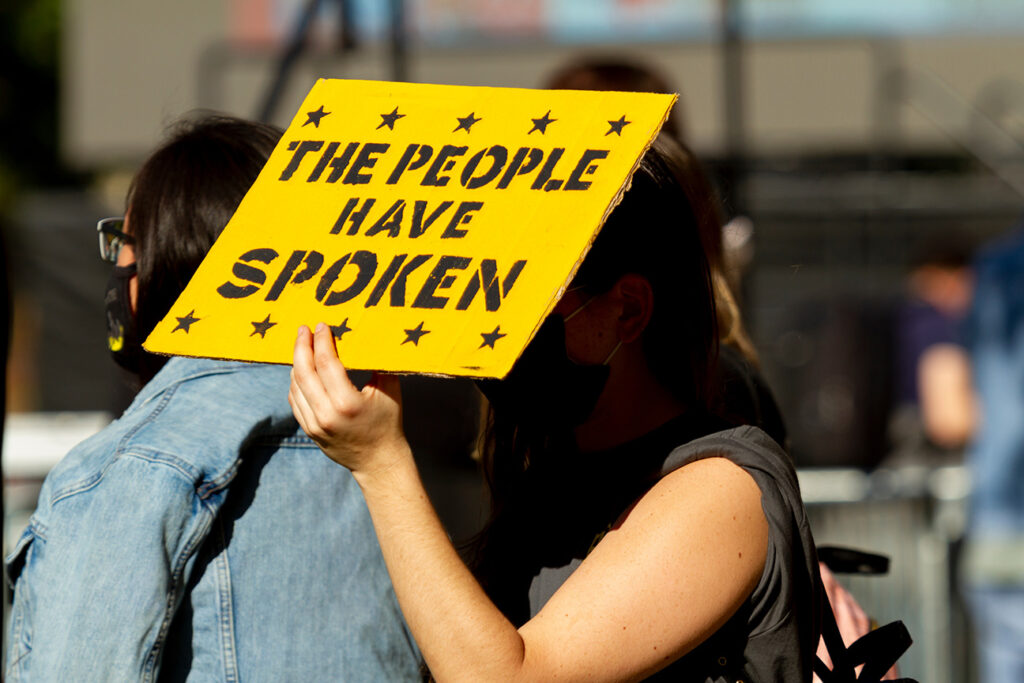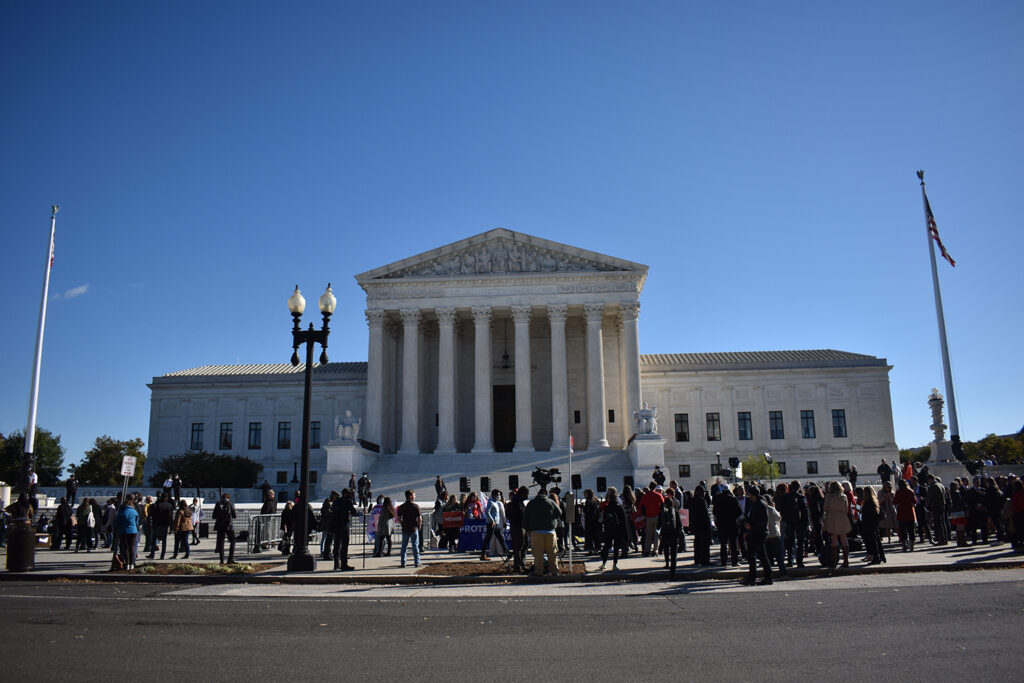Kellan Baker and Caroline Medina AcademyHealth blog post on “Data Equity and LGBTQ Populations: Why Collecting Sexual Orientation and Gender Identity Data Matters.”
Whitman-Walker Institute’s Policy Department works to advance laws and policies at the local, state, and national levels that promote health equity, expand access to health care and coverage, and dismantle discrimination and other forms of structural oppression affecting underserved communities.


We bring to this work rigorous research and health policy analysis, deep relationships with state and federal policymakers, longstanding collaborations with partner organizations across multiple justice movements, and the direct service experience of Whitman-Walker Health (WWH), a Federally Qualified Health Center (FQHC) that serves thousands of diverse patients across the Washington D.C. area and beyond. We have expertise in areas of policy such as LGBTQI+ health equity, gender-affirming care, insurance reform, health system transformation, social determinants of health, HIV prevention and treatment, and sexual orientation and gender identity data collection.

The Policy Department pursues its mission by focusing on three integrated priorities:

Ensure equitable access to high-quality, integrated health services and health insurance coverage for underserved communities nationwide, especially for LGBTQI+ people, people living with HIV, and FQHC patient populations.

Enhance responsible data collection on sexual orientation, gender identity, and variations in sex characteristics to advance evidence-based policymaking, intersectional research agendas, and the provision of high-quality, person-centered care.

Develop and promote policies that improve social determinants of health and population health for underserved communities, particularly LGBTQI+ people, people living with HIV, and FQHC patient populations.

Key Initiatives include:
Leadership of Federal LGBTQI+ Health Policy Roundtable, which brings together national partners from the LGBTQI+ movement, reproductive rights and justice advocates, and other progressive organizations to advance policies that reduce disparities and improve the well-being of LGBTQI+ communities nationwide.
Spearheading cross-coalition work to advance data equity for underserved communities by enhancing data collection on sexual orientation and gender identity in combination with other core demographic variables to support intersectional research agendas and evidence-based policymaking.
Leadership of a nationwide coalition of clinicians dedicated to ensuring access to medically necessary healthcare for transgender people through education, advocacy, resource sharing, and effective communication strategies to combat disinformation.
Coordination of the D.C. Health Equity Partnership project to build community power, address the siloing multiple justice movements in D.C., and create a comprehensive Queer and Trans Agenda for Racial and Economic Justice to address systemic inequities across key sectors.
Carrying out a bio-psycho-social approach to ending the HIV epidemic that centers the experiences of people living with HIV and addresses a multitude of the root causes that drive disparities in HIV infection and transmission.
Working with Whitman-Walker Health and other Federally Qualified Health Centers (FQHCs) to support policies that ensure financial sustainability of FQHCs as key access points for patient populations.
Conducting rigorous research to advance equity-driven health insurance reforms on the D.C. health insurance marketplace by addressing racial and economic disparities and eliminating cost barriers to access care related to mental health, cardiovascular disease, and HIV.
Recent Activities:
Kellan Baker and Caroline Medina AcademyHealth blog post on “Data Equity and LGBTQ Populations: Why Collecting Sexual Orientation and Gender Identity Data Matters.”

Whitman-Walker Institute public comment – joined by the U.S. Professional Association for Transgender Health and GLMA: Health Professionals Advancing LGBTQ+ Equality – opposing efforts by the Texas Department of Health and Human Resources to expand the state’s ban on gender-affirming care under state Medicaid.

“When Identity and Genetics Intersect” – a Podcast conversation between Dr. Kellan E. Baker, Executive Director and Chief Learning Officer of the Whitman-Walker Institute, and Dr. Frederick Chen, Chief Health and Science Officer of the American Medical Association.

Personalized Medicine Coalition (PMC) released its “Addressing Disparities in Research Informing Personalized Medicine” final report, developed and written by PMC’s Health Equity Task Force, of which Whitman-Walker Institute’s Dr. Kellan Baker is a member.

Op-ed in The Hill by Sara Mar of Whitman-Walker Institute pushing back on the adoption of new anti-transgender policies in Florida.

Op-ed in Ms. Magazine by Sara Mar of Whitman-Walker Institute on state-level efforts to restrict essential health care across the country.

Op-ed in NewThinking by Sara Mar of Whitman-Walker Institute arguing that attacks on transgender medical care are an issue of racial and economic justice.

American Journal of Public Health article by members of Whitman-Walker Institute on “Advancing Sexual and Gender Minority Population Health Using Electronic Health Record Data”.

Out2Enroll released its Transgender Health Insurance Guides for 2024, which provides a systematic review of plans offered in 32 states on the federal marketplace.

Whitman-Walking Institute, Human Rights Campaign, and Movement Advancement Project lead public comment signed by 185+ organizations urging the Administration to improve LGBTQI+ data collection on the American Community Survey, the nation’s premier source of data on the social, economic, housing and demographic characteristics of the U.S. population.

Whitman-Walker joint comment regarding the one-year anniversary of the Presidential Advisory Council on HIV/AIDS resolution on the use of Molecular HIV Surveillance and Cluster Detection and Response policies.

Whitman-Walker Institute receives a new 4-year grant from the Greater Washington Community Foundation to support health advocacy, policy, and systems change.

Whitman-Walker comments in support of a national coverage determination for Pre-Exposure Prophylaxis, both as a physician-administered and self-administered prevention modality.

Whitman-Walker comments in response to the United State Preventive Services Taskforce Grade A Recommendation for Pre-Exposure Prophylaxis (PrEP) for HIV.

D.C. Health Benefit Exchange Authority partners with Whitman-Walker Institute to improve access to mental and behavioral health services for children.

Whitman-Walker Institute public comment regarding the health care rights law (Section 1557 of the Affordable Care Act).

Led by Whitman-Walker Institute, the Federal LGBTQI+ Health Policy Roundtable publishes a report identifying opportunities for immediate action for improved health outcomes for LGBTQI people across the country.

Whitman-Walker at LIZ
1377 R St NW, Suite 200
Washington, DC 20009
Max Robinson Center
1201 Sycamore Drive SE
Washington, DC 20032
Get the latest Whitman-Walker Health community news delivered to your inbox!
© 2024 Whitman-Walker. All Rights Reserved.